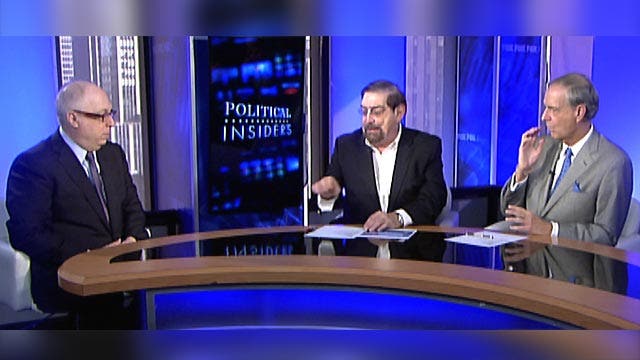With less than a week to go until Election Day, Republicans have more and more to smile about.
I’ve worked in politics for over 35 years and know just as well as anybody that it’s a mistake to take any votes for granted. This is especially true in this day and age when a national health crisis could break out at any moment, a radical Islamist terrorist group could behead an innocent civilian, or there could be a natural disaster that demands an urgent national response.
National sentiment can shift overnight. And while the battle for control of the Senate is shifting towards the Republicans, races in key battleground states are deadlocked.
[pullquote]
According to Nate Silver’s most current projections in his FiveThirtyEight Politics blog, the Republicans have a 63% chance of winning a majority in the Senate while the Democrats only have a 37% chance of preserving their majority. Over the course of October, these numbers have remained relatively static, shifting a few points in either direction but always within the margin of error – and always with the Republicans on course to win the six seats they need to take control.
That said, the specific states that will deliver Senate control to the Republicans are still very much up in the air.
In just the last week, Real Clear Politics shifted Arkansas from being a complete toss-up to leaning Republican and now back to a toss-up. We’ve seen a similar shift, though in the other direction, in North Carolina, where Democrat Kay Hagan looked like she was taking back control of the race but is now tied with Republican Thom Tillis in the latest NBC News/Marist poll.
There are a few states in the toss-up category that look to be breaking for Republicans. In Colorado, Democrat Senator Mark Udall has been hurt by his connection to President Obama and waning support with Latino voters. Nate Silver’s forecasting model has put Gardner’s chances of winning at 80%. It’s hard to see Udall pulling it out next week even if some polls only have him ahead by one or two percentage points.
Recent polling out of Alaska shows a clear path to the Washington for Republican challenger Dan Sullivan. Siting Democrat Senator Mark Begich hasn’t led in a poll since August. And although it’s still close – Sullivan is only leading by three to four percentage points – it looks like Alaska will go the Republicans’ way.
In Iowa, Republican Joni Ernst has been gaining momentum over the past couple of weeks. Her straight talking style, likeability and veteran status has been going over well with Iowa voters especially as Democrat Bruce Braley continues to come off as flat and dispassionate despite a strong record from his time in Congress. Ernst is now ahead by two to three percentage points.
Senate Minority Leader Mitch McConnell looks to be in firm control after crucial mistakes by Democrat challenger Alison Grimes. Though President Obama is deeply unpopular in Kentucky, Grimes’s refusal to admit whether or not she voted for him makes her seem unsteady and unreliable, if not outright dishonest. And although the DSCC is advertising for Grimes again, McConnell is up over four points with momentum going his way.
The race between Independent Greg Orman and Republican Pat Roberts in Kansas is certainly one of the most interesting. Orman holds a lead of less than 1% over Roberts, well within the margin of error. If Orman is able to eke it out, and no matter which party he caucuses with, his victory may very well usher in a new era in third party politics and we will see more Independent challengers – a change that I would welcome.
As in Louisiana, ties to President Obama have really been hurting Democrat incumbent Mary Landrieu. Though she is leading in the primary election against Bill Cassidy, she’s losing by over four percentage points in head-to-head match-ups with Cassidy. Republican ads continually cite Landrieu’s record: she voted with President Obama 97% of the time. And while there are enough undecided voters that things could swing Landrieu’s way, she is certainly struggling.
In a bright spot for the Democrats, Jeanne Shaheen is leading Scott Brown by as much as five points in recent polls. And Michelle Nunn is hanging on to a slim lead in Georgia.
What’s clear is that despite the obvious and much-discussed absence of a national Republican agenda, simply not being a Democrat has been enough to secure Republican leads in most of this year’s competitive elections.
As I argue above, every day counts in the lead up to an election. Races this close can turn, but there’s no doubt that the momentum is heading in the Republicans’ direction.









































